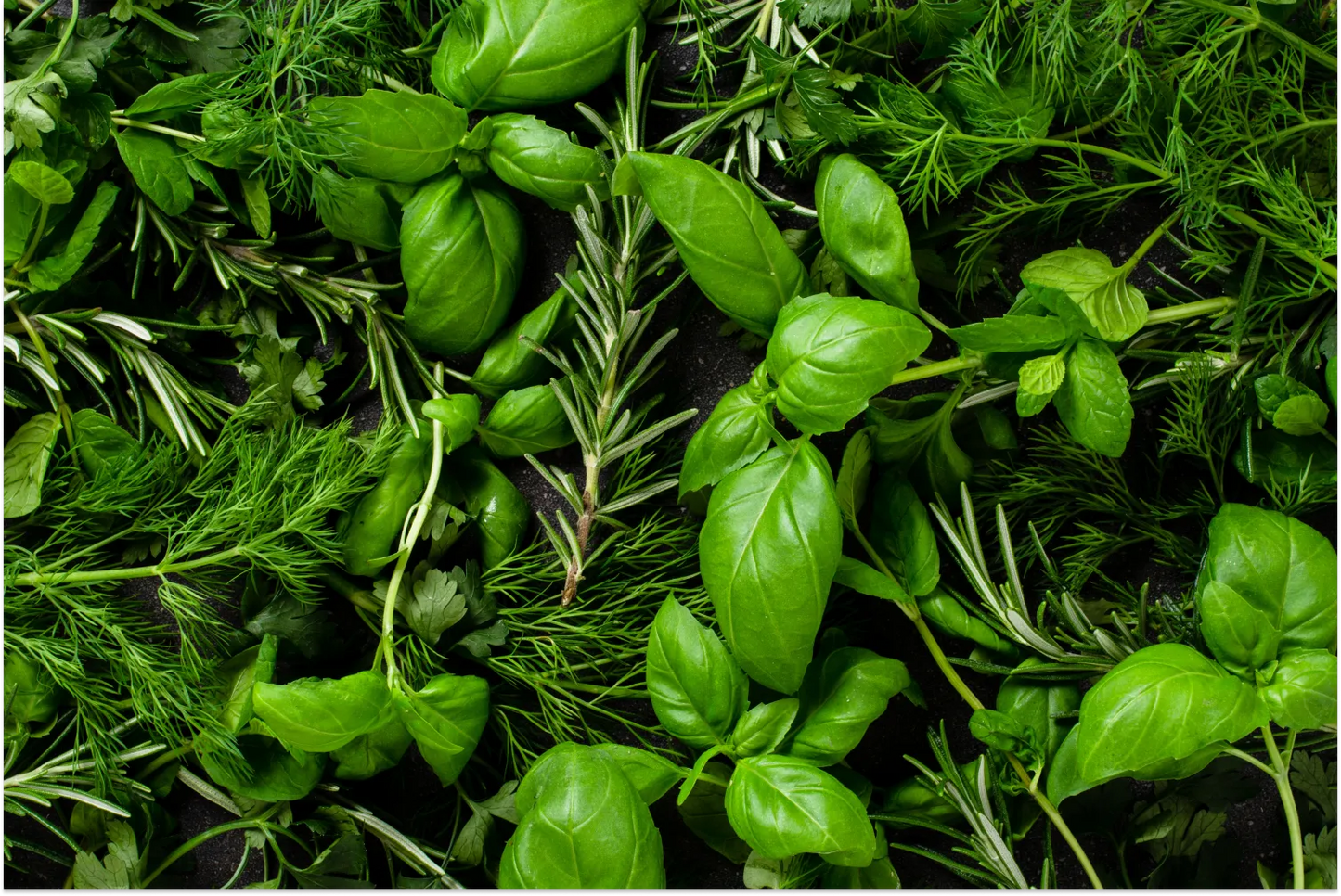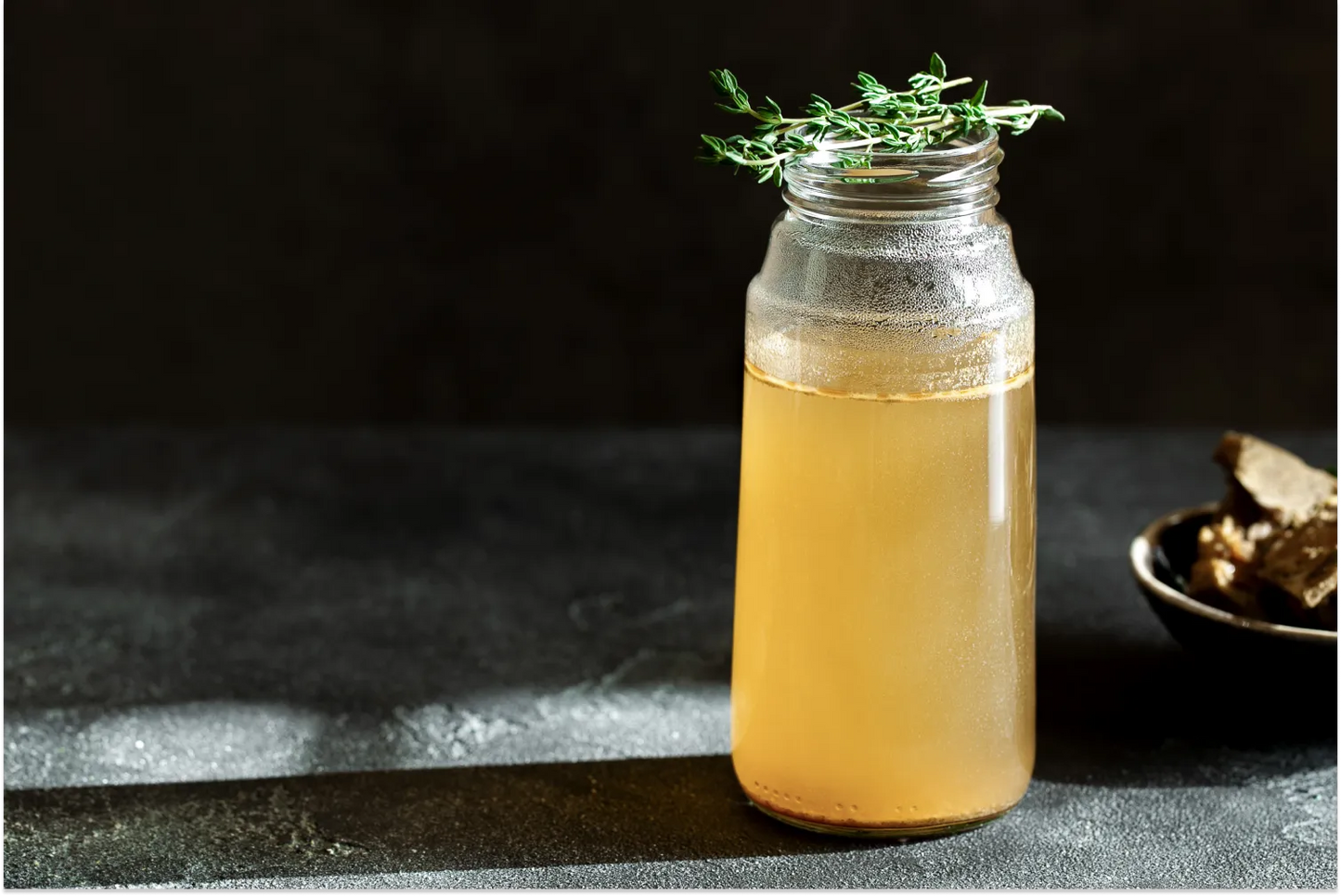
12 Herbs for Anti-Aging: Promote Youthful Radiance
In the eternal quest for the fountain of youth, nature unfurls her treasure trove, unveiling herbs that have been the secret allies of radiant skin across millennia. While modern beauty solutions come and go, the wisdom of the ancients remains timeless.
Dive into the verdant world of 12 wonder herbs, each promising to restore and nourish, giving your skin the youthful vibrancy it yearns for. As you weave through these botanical narratives, discover how a blend of nature's finesse and holistic care can etch the glow of youth onto your skin's canvas.
Welcome to the journey of natural anti-aging, where the past meets the present and beauty blossoms.
What Causes Signs of Aging?
Aging, as inevitable as the sunrise, has always intrigued mankind. What drives the transition from the supple skin of youth to the fine lines of maturity? To understand, let's look beyond the mirror.
Cellular Aging
Zoom into the microscopic world, and you'll witness cells tirelessly at work. However, as time marches on, cellular renewal slows, and their vitality wanes. This reduced functionality directly mirrors the visible changes we notice.
Influence of Genetics and Heredity
It's in your DNA! Our genetic code, inherited from ancestors, often scripts our aging story. If your mother or grandmother graced their 50s with minimal wrinkles, chances are, you might enjoy a similar fate.
Environmental Factors
- Sun exposure: The sun, our golden globe, endows us with the vital gift of vitamin D. Yet, its light can also usher in insidious UV rays, which stealthily compromise skin integrity.
- Pollution: Modern urban landscapes, with their majestic high-rises, frequently harbor unseen clouds of pollutants. These microscopic adversaries besiege our skin, inciting oxidative reactions that expedite the emergence of premature signs of aging.
Role of Free Radicals and Oxidative Stress
Imagine tiny rogues, known as free radicals, launching a relentless barrage on the fortress of our skin. Their unremitting raids lead to oxidative wear and tear, sculpting the chronicles of our years onto our very countenance.
Lifestyle Impacts on Aging
- Diet: The old saying that "you are what you eat" holds true. Nourishing, antioxidant-rich sustenance illuminates the skin from within, while processed, sugary culprits may hasten the shadows of aging.
- Sleep: Beauty sleep isn't a myth. The rejuvenating properties of deep sleep weave magic, but its chronic deficit weaves a different tale, one of fatigue and age acceleration.
- Stress: Unabated stress triggers a surge of cortisol, which wages a silent war against collagen, diminishing the skin's innate buoyancy.
- Smoking and alcohol: While these vices have internal ramifications, they expedite skin aging. Exercising restraint is not just wise — it's key.
Hormonal Changes Over Time
Hormonal changes are a natural part of aging. However, this intricate dance, over decades, can attenuate the skin and disturb the intricate lattice of collagen, altering the skin’s resilience.
How Does Aging Affect the Skin Over Time?
Aging's intricate tapestry influences both the superficial appearance of the skin and its profound inner workings.
Collagen and Elastin Degradation
Imagine collagen as the architectural framework, with elastin providing elasticity, much like taut rubber bands. Time, however, can weaken their cohesive bond, rendering the skin less taut and more susceptible to wrinkles.
Decrease in Skin Hydration
Youthful skin drinks moisture, but age can cause the skin to have a more difficult time absorbing moisture. This can exacerbate symptoms like skin roughness and dryness, wrinkles, and fine lines.
Changes in Skin Elasticity and Resilience
The skin’s bounce-back ability, also known as skin elasticity, tends to wane with age as collagen decreases. This can cause the skin to appear saggy and exacerbate the appearance of wrinkles.
Visible Signs of Aging
- Age spots: These sun-kissed patches, while often seen as wisdom badges, can emerge with prolonged exposure.
- Fine lines and wrinkles: Smiles, frowns, and the elements etch their stories, crafting the lines of life lived.
- Thinning of the skin: The once robust protective barrier of the skin can become fragile, rendering it almost translucent in places.
Underlying Effects on Skin Structures
- Fat loss: Gradual fat attrition can redefine facial contours, changing the way your face is structured.
- Bone reabsorption: The natural decline in bone mass and density can subtly morph our skeletal foundation, which in turn affects the way the skin drapes.
12 Herbs That Can Encourage a Youthful Appearance
In the tapestry of nature, certain herbs stand out for their ability to support our skin's natural radiance and foster a youthful glow. From ancient traditions to modern-day research, let’s explore how these herbs can be nature's gift to our skincare routine.
1. Turmeric
A jewel of ancient India, turmeric has long been cherished in Ayurvedic practices for over 4,000 years. The vibrant yellow compound of curcumin is the magic behind its tension-soothing and antioxidant properties.
Turmeric can be enjoyed in various forms, from curcumin-infused serums to oral supplements and even a heartwarming golden tea. Though generally safe, excessive consumption might lead to digestive discomfort, so moderation is key.
2. Green Tea
Originating from ancient China, green tea is more than just a refreshing drink. Its powerful antioxidant properties, primarily from catechins like EGCG, have been shown to help the skin defend against UV rays, which can encourage a youthful complexion.
Whether sipping a calming cup or applying skincare products infused with green tea extract, this herb is a boon for the skin. As with all things, moderation is essential, as excessive green tea might lead to caffeine-induced jitters.
3. Ginseng
A symbol of vitality in traditional Chinese medicine, ginseng is renowned for its rejuvenating properties. Its active components, ginsenosides, have tension-soothing and antioxidant benefits.
Whether it's a serum, face mask, or an herbal supplement, ginseng can be a delightful addition to a skincare regimen. Do remember that high doses might occasionally cause headaches or digestive concerns.
4. Rosemary
A fragrant herb from the Mediterranean, rosemary has been appreciated since ancient times. Its antioxidant prowess, mainly from rosmarinic acid, can support skin elasticity, making it look refreshed and vibrant.
Rosemary can be incorporated into one's routine via essential oils, soothing creams, or even a comforting cup of herbal tea. It's always wise to avoid very high concentrations in topical applications to sidestep potential irritations.
5. Aloe Vera
Often termed the "plant of immortality" by ancient Egyptians, aloe vera's skin care benefits are timeless. Its myriad of vitamins, enzymes, and amino acids can soothe and hydrate the skin.
From its gel for direct application to its inclusion in creams and even as a beverage, aloe vera remains a versatile ally for the skin. On rare occasions, some might experience a sensitivity, so it’s always wise to patch-test.
6. Lavender
The calming scent of lavender has been adored by ancient Romans and Greeks alike. Rich in linalool, lavender can soothe the skin, reducing signs of stress and fatigue.
Its benefits can be harnessed through essential oil blends, moisturizing lotions, or a tranquilizing tea. As with most botanicals, it's always wise to ensure products are well diluted to avoid potential sensitivities.
7. Ginkgo Biloba
This ancient tree species, with roots going back to almost 270 million years, is a living testament to endurance and vitality. Terpenoids and flavonoids are the compounds that infuse ginkgo with its potent anti-oxidative properties.
Ginkgo's blessings can be experienced through skin serums, age-defying creams, or as an herbal supplement. However, you may want to take it slow if you choose to use a supplement, as excessive intake can sometimes cause digestive discomfort or headaches.
8. Chamomile
Often evoking images of a warm, comforting brew, chamomile, with its Roman and Egyptian origins, has long been the go-to herb for tranquility. Its active component, bisabolol, is known for skin-soothing and antioxidant qualities.
It's delightful as a calming tea, soothing skin creams, or essential oils. It's generally well-tolerated, but those with ragweed allergies should proceed with caution.
9. Garlic
Revered in ancient Egypt and Greece, garlic is not just an aromatic culinary delight but a powerhouse of age-defying properties. Allicin, its active ingredient, is celebrated for its antioxidant benefits.
While commonly consumed as a food, garlic-infused oils and creams are also gaining popularity. Although it has benefits for many, excessive consumption might lead to bad breath or digestive issues.
10. Licorice Root
Journeying from ancient Egyptian traditions and traditional Chinese medicines, licorice root has long been a cherished remedy. Glabridin and liquiritin, two potent compounds, offer skin-brightening and evening properties.
Whether in a serum, a hydrating cream, or tea, licorice root is a holistic addition to skincare. However, when consumed in large quantities, it's wise to monitor blood pressure as it might see a spike.
11. Holy Basil
Hailing from India, Holy Basil, or “Tulsi,” is not just sacred in rituals but in skincare, too. Ursolic acid, an essential compound, has been linked to potential anti-aging effects.
It's a treasure in tea form, creams, and even as an essential oil. Generally gentle on the system, but as with most herbs, excessive intake can lead to potential hormonal imbalances.
12. Calendula
Vibrant and sun-kissed, calendula has a rich history in Roman and Greek cultures. Carotenoids, its active compounds, are known to nourish the skin.
It's widely adored in creams, serums, and as an infused oil. While it's a gentle herb, topical application on sensitive skin should be patch-tested first to avoid potential irritations.
What Else Can You Do To Support Skin Health?
Amidst the realm of natural remedies and herbs, it’s important to take a holistic approach to supporting skin health. Let's venture beyond the green and dive into some of these practices that can enhance your skincare regimen.
Facial Exercises
Not only do our bodies benefit from regular workouts, but our faces do, too! Facial exercises, sometimes termed "face yoga," can increase blood flow, bringing nutrients to the skin's surface and lending a radiant glow. Consistent practice can also help tone facial muscles, combatting sagging and promoting a firmer skin appearance.
Proper Hydration
Water isn't just vital for survival — it's a skin savior. Regular hydration maintains skin elasticity, warding off dryness and premature wrinkles. Additionally, using humidifiers, especially in dry climates or during winter, can add moisture to the environment, benefiting the skin's barrier and maintaining its youthful plumpness.
Mindfulness and Meditation
As mentioned earlier, stress is a silent ager. Embracing mindfulness and meditation can be transformative for your skin. These practices lower cortisol levels, indirectly supporting collagen production and skin health. Plus, a calm mind often reflects in clear, radiant skin.
Routine Exercise
Beyond body toning, did you know exercise offers a skincare bonus? Engaging in regular physical activity increases blood circulation, ensuring oxygen and nutrients reach our skin cells. This not only imparts a post-workout glow but also supports skin regeneration and detoxification.
How Can Collagen Help?
Collagen, the skin's structural protein, is crucial for maintaining its elasticity and firmness. As we age, its natural production dwindles, which is why it becomes key to supplement our diets with collagen. Enter Dr. Kellyann.
Rich in collagen, our formulations are designed with aging skin in mind. Plus, we’ve made it easier than ever to incorporate collagen into your daily diet. From unflavored collagen powders to delicious collagen shakes, we have an option for every set of taste buds!
The Bottom Line
Holistic is the keyword when it comes to anti-aging. While herbs and topical applications play a role, it's the orchestration of lifestyle, diet, and overall health that crafts the true symphony of youthful skin.
Always remember to loop in dermatologists or healthcare providers, especially when introducing new herbal treatments or supplements. Their expert guidance can steer you clear of potential pitfalls and align you with what's best for your unique skin needs.
As you embark or continue on your anti-aging journey, know that you have our support here at Dr. Kellyann. For more health tips, visit our blog.
Sources:
Premature Aging: Signs, Causes & Prevention | Cleveland Clinic
Ginseng: An Nonnegligible Natural Remedy for Healthy Aging | PMC
Chamomile: A Herbal Medicine of the Past with Bright Future | PMC
Tulsi - Ocimum Sanctum: A Herb for All Reasons | PMC
Does Your Face Need a Workout? | Harvard Health
Dietary Water Affects Human Skin Hydration and Biomechanics | PMC
Mindfulness and Meditation for Psoriasis: A Systematic Review | NCBI Bookshelf
How Your Workout Can Affect Your Skin | American Academy of Dermatology







